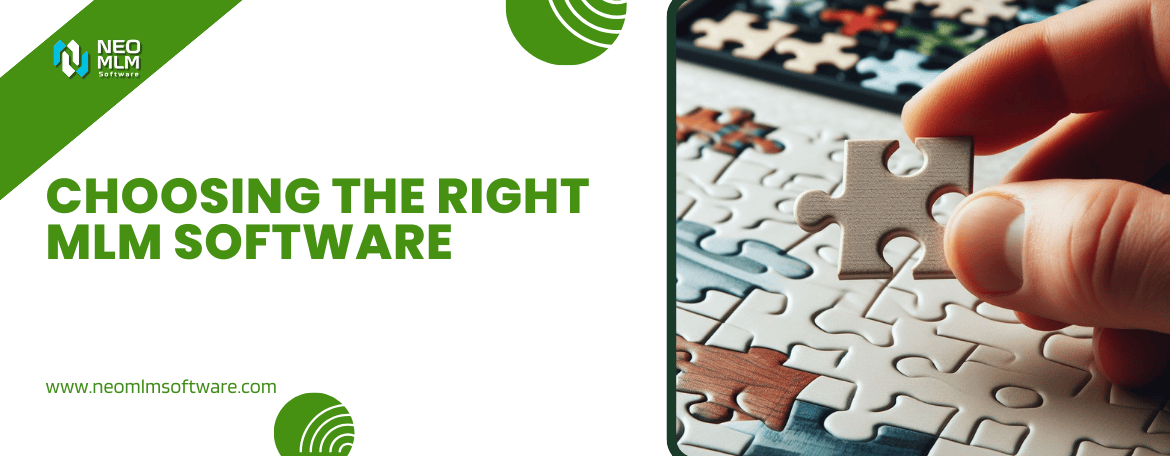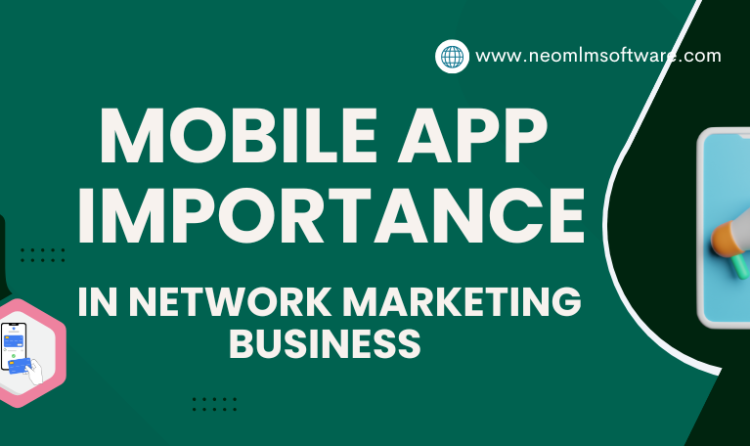Choosing the Right MLM Software: Key Features and Considerations
MLM Software has emerged as a pivotal tool, empowering businesses to streamline operations, enhance communication, and drive growth. MLM Software has emerged as a game-changer, providing a technological backbone for businesses engaged in network marketing.
We will explore the key features and considerations essential in choosing the right Network Marketing software, shedding light on how these solutions can empower businesses to achieve their goals and overcome challenges in the dynamic landscape of network marketing.
Importance of MLM Software:
Multi-level marketing, often referred to as network marketing or direct selling, relies on a structured network of independent distributors who earn income not only through direct sales but also by recruiting new members into their downline. Managing this complex structure efficiently requires specialized tools, and MLM Software serves as the linchpin in this regard.
Key Features to Consider While Choosing the Right MLM Software:
- Comprehensive User Management: Efficient MLM Software should provide robust user management capabilities. This includes features like user registration, profile management, and role assignment. The ability to easily add, modify, or deactivate users ensures that the network is dynamically managed as it evolves.
- Automated Compensation Plans: MLM compensation plans are often intricate, involving various commission structures, bonuses, and incentives. Opting for software that automates the calculation and distribution of commissions ensures accuracy and transparency, fostering trust among distributors.
- Real-Time Reporting and Analytics: The power of data cannot be overstated in the business world. MLM Software equipped with real-time reporting and analytics enables businesses to gain valuable insights into sales performance, team growth, and market trends. Informed decision-making becomes a reality when armed with such actionable data.
- Communication Tools: Effective communication is the lifeblood of any MLM business. Look for software that offers robust communication tools such as messaging systems, newsletters, and notifications. Seamless communication fosters a sense of community among distributors and ensures that everyone is on the same page.
- Scalability and Flexibility: As businesses expand, so does the network of distributors. Choosing MLM Software that is scalable ensures that the system can handle a growing user base and increased transactions without compromising performance. Additionally, flexibility in adapting to different compensation plans and business models is crucial.
- E-Commerce Integration: Many MLM businesses operate in tandem with e-commerce platforms. Integration with popular e-commerce solutions allows for a seamless connection between sales and the MLM Software, facilitating efficient order processing and commission tracking.
- Security Features: Given the sensitive nature of the data involved in MLM, robust security features are non-negotiable. Look for software that employs encryption, secure login protocols, and data backup mechanisms to safeguard against potential threats.
- Training and Support: The learning curve associated with MLM Software can be steep. Opt for a solution that provides comprehensive training resources and ongoing support. A responsive support system ensures that any issues are addressed promptly, minimizing disruptions to business operations.
How MLM Software Empowers Businesses:
- Streamlining Operations: MLM software acts as a central hub for managing various aspects of the business, from user onboarding to commission calculations. By automating repetitive tasks, it streamlines operations, reducing manual effort and minimizing the risk of errors.
- Enhancing Efficiency: The real-time reporting and analytics features of MLM software empower businesses to monitor and analyze their performance promptly. This efficiency enables quick identification of strengths and weaknesses, allowing for strategic adjustments to enhance overall performance.
- Optimizing Compensation Plans: One of the critical advantages of MLM software is its ability to optimize and automate complex compensation plans. Whether it’s binary, matrix, or unilevel, the software ensures that distributors are accurately compensated for their efforts, fostering trust and motivation within the network.
- Facilitating Growth: Scalability is a key factor in the success of MLM businesses. The right software grows with the business, accommodating an expanding network of distributors and increasing transaction volumes. This flexibility ensures that the system remains reliable even during periods of rapid growth.
- Improving Communication: MLM software enhances communication between the company and its distributors through built-in tools. From announcements and newsletters to personalized messaging, effective communication strengthens the sense of community within the network, boosting morale and collaboration.
- Ensuring Data Security: In an era where data breaches are a significant concern, MLM software prioritizes data security. Encryption, secure storage, and compliance features safeguard sensitive information, instilling confidence in distributors and customers alike.
Considerations When Choosing MLM Software:
- Customization Options: Every MLM business is unique, and the software should offer customization options to align with specific requirements. The ability to tailor the software to the business’s structure and compensation plans is crucial for optimal functionality.
- Ease of Use: A user-friendly interface is essential for widespread adoption of MLM software. Training distributors and administrators should be a seamless process, ensuring that all stakeholders can navigate the system with ease.
- Vendor Reputation: Choosing a reputable vendor is paramount. Research the vendor’s track record, read client testimonials, and assess the level of customer support offered. A reliable vendor contributes to the long-term success of the MLM business.
- Integration Capabilities: MLM software should integrate seamlessly with other tools and platforms, especially if the business utilizes additional software for tasks such as accounting, marketing, or e-commerce. Integration capabilities enhance overall efficiency.
- Cost-Effectiveness: While the benefits of MLM software are undeniable, businesses should also consider the cost. Look for a solution that offers value for money, balancing features and functionality with the budgetary constraints of the business.
Conclusion:
In the dynamic world of Multi-Level Marketing, choosing the right MLM software is a strategic decision that can significantly impact the success of a business. By understanding the key features and considerations outlined in this article, businesses can empower themselves to make informed choices that align with their unique needs and growth objectives.
Related:
1. The Evolution of MLM Software
2. Customizing MLM Software for Different Compensation Plans
3. Optimizing Sales and Downline Management with MLM Software
4. MLM Software vs. Traditional Business Tools: Advantages and Differences






